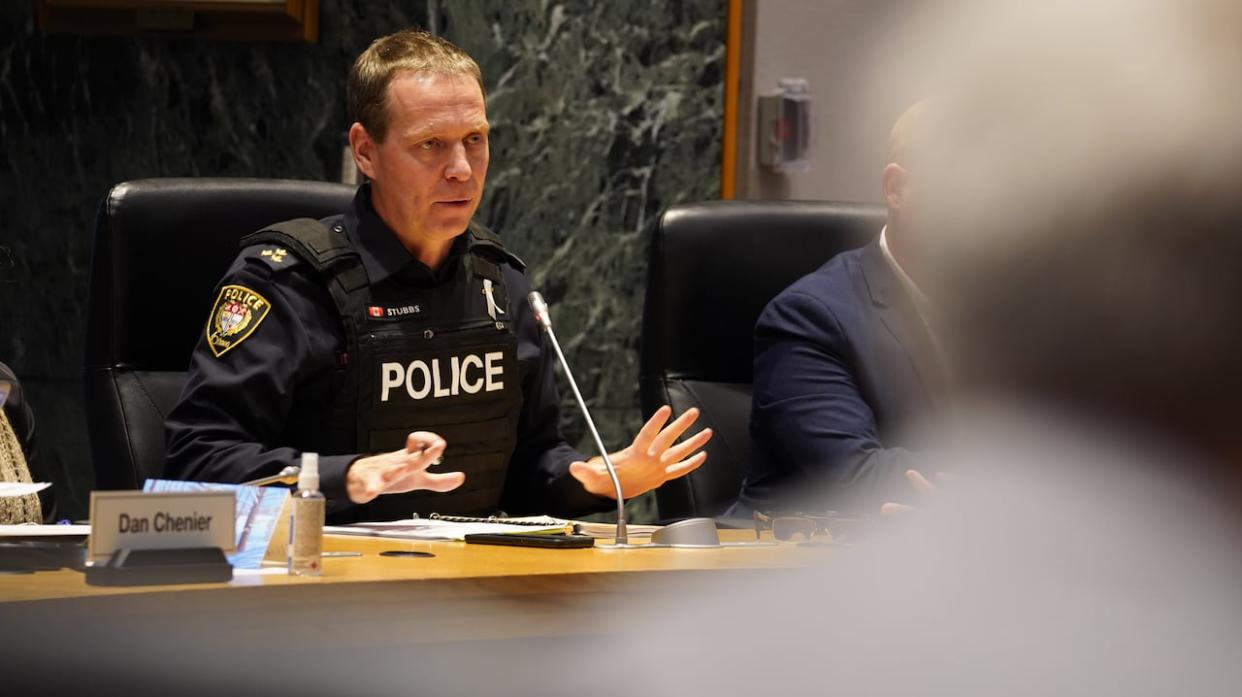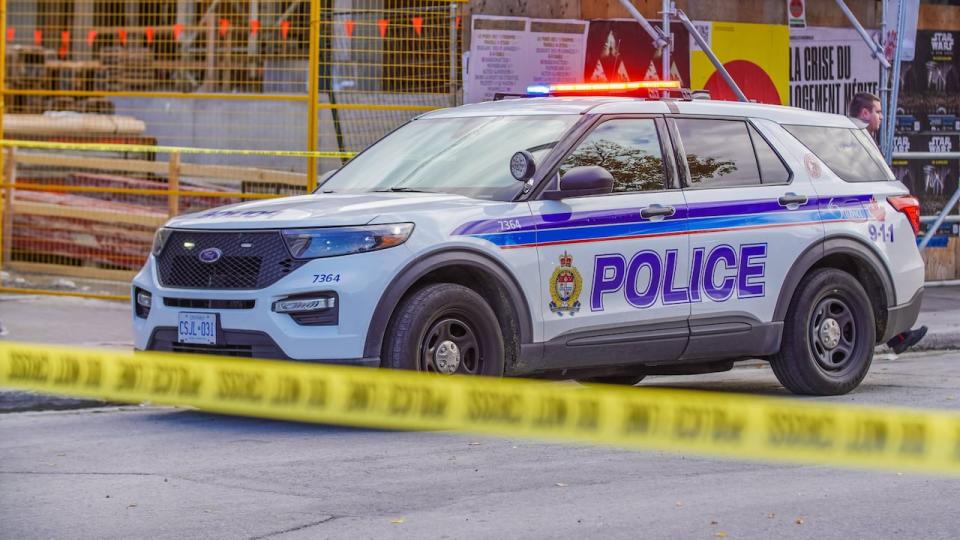$415.5M police budget passes as councillors say they aren't seeing enough officers

Ottawa city council has passed a $415.5-million police budget as councillors called for more officers in neighbourhoods experiencing rampant shoplifting, a wave of auto thefts and dangerous driving.
Council voted 17 to eight in favour of the 2024 police budget, which will raise spending by $13.4 million compared to 2023. The dissenting votes came mostly from councillors who represent the city centre, and who said Ottawa needs to move tasks away from police and better support organizations working to prevent crime instead.
Ottawa Police Service (OPS) Chief Eric Stubbs said his officers are overburdened. He told councillors the budget will help fund a three-year staffing plan that isn't a "Cadillac," but will stabilize the force. It would see 25 new hires in 2024.
River ward Coun. Riley Brockington said he's worried about a lack of police visibility in residential areas, as officers meant for neighbourhood response teams are constantly redeployed.
"The issues in my neighbourhoods are not getting better, and the police are not the sole solutions to the problems, they are part of the recipe," said Brockington. "But we absolutely need a shift here."
Stubbs highlighted the district policing model OPS is moving toward beginning next year, though it won't be fully in place until 2025. He pledged to rely on evidence and advice from councillors in targeting priority areas.
Shoplifting a growing concern
Several councillors mentioned shoplifting as a growing concern.
"It is a very serious situation and people are nervous even to be around Blair Station right now just because a lot of the theft," said Beacon Hill-Cyrville Coun. Tim Tierney.
Stubbs said the OPS is trying to work with businesses to "harden" their properties so they aren't as susceptible to shoplifting, including through cameras, security guards and store design.
"It is rampant in the box stores as well as the small businesses," said Stubbs. "We do need to be there for those businesses. It's difficult."
He said the force will be launching "Project Scrooge" this month to proactively target high-occurrence locations and prolific offenders who are shoplifting every day.
Riverside South-Findlay Creek Coun. Steve Desroches said he wants to see more enforcement around speeding and dangerous driving. Stubbs accepted that police need to focus on that more, but said that about half of the positions in the traffic enforcement unit are now vacant.

While some councillors said they'd like to see a greater police presence in their wards, others say more officers won't solve every problem. (Michel Aspirot/CBC News)
Some communities 'don't feel safe'
But several councillors warned that police shouldn't be the go-to solution for all of those problems. According to Bay ward Coun. Theresa Kavanagh, if Ottawa needs to hire more police to slow down drivers, the real issue is a "failure" in road design.
College ward Coun. Laine Johnson said police have to do more to build bridges with communities that are worried about gun violence but don't trust police.
"These racialized communities want to help," she said. "But they don't feel that they have the protection when they call a hotline. They don't feel they have the follow-through.... They don't feel safe."
Capital ward Coun. Shawn Menard asked whether constant police budget increases are "inevitable." He said policing is not the best way to handle issues such as homelessness and mental health.
"We know that there's concerns with overpolicing of black, raciliazed and Indigenous communities, and the cost that comes along with that, both in terms of trust and financial cost," he said.
"So the question is, what are you doing to detask, to reduce your workload, so we're not getting those big budget requests?"
Stubbs said he's also is interested in detasking, including mental health calls, but there are so many demands on his force that increasing demand in areas such as cybercrime, fraud and traffic enforcement will easily replace whatever is taken off their plate.
"There is no question that our members are overtasked. The cup runneth over," Stubbs said. "[That] the list of demands for the police is increasing is no doubt, and you heard it around the table today. They want more of us in their neighbourhoods."


